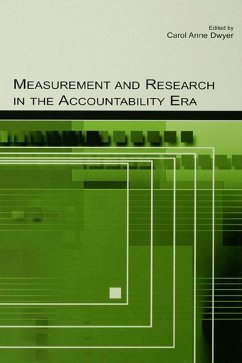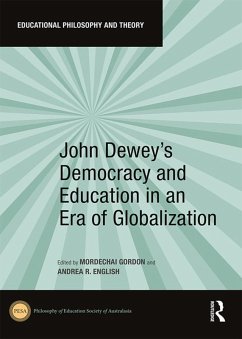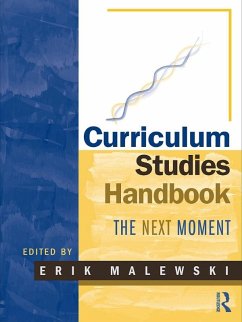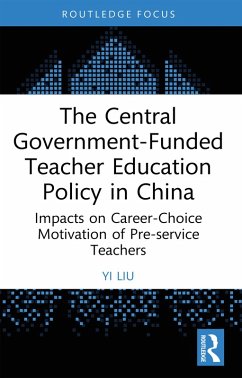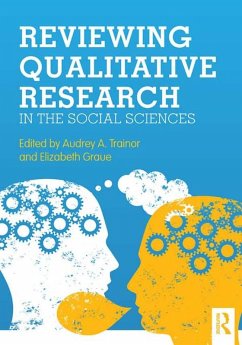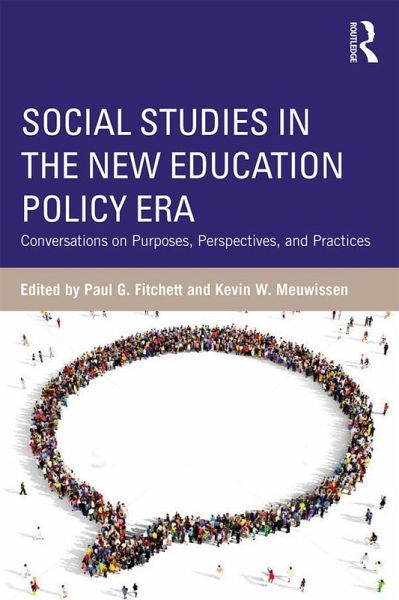
Social Studies in the New Education Policy Era (eBook, PDF)
Conversations on Purposes, Perspectives, and Practices
Redaktion: Fitchett, Paul G.; Meuwissen, Kevin W.
Versandkostenfrei!
Sofort per Download lieferbar
43,95 €
inkl. MwSt.
Weitere Ausgaben:

PAYBACK Punkte
22 °P sammeln!
Social Studies in the New Education Policy Era is a series of compelling open-ended education policy dialogues among various social studies scholars and stakeholders. By facilitating conversations about the relationships among policy, practice, and research in social studies education, this collection illuminates various positions-some similar, some divergent-on contested issues in the field, from the effects of standardized curriculum and assessment mandates on K-12 teaching to the appropriate roles of social studies educators as public policy advocates. Chapter authors bring diverse professi...
Social Studies in the New Education Policy Era is a series of compelling open-ended education policy dialogues among various social studies scholars and stakeholders. By facilitating conversations about the relationships among policy, practice, and research in social studies education, this collection illuminates various positions-some similar, some divergent-on contested issues in the field, from the effects of standardized curriculum and assessment mandates on K-12 teaching to the appropriate roles of social studies educators as public policy advocates. Chapter authors bring diverse professional experiences to the questions at hand, offering readers multiple perspectives from which to delve into well-informed discussions about social studies education in past, present, and future policy contexts.
Collectively, their commentaries aim to inspire, challenge, and ultimately strengthen readers' beliefs about the place of social studies in present and future education policy environments.
Collectively, their commentaries aim to inspire, challenge, and ultimately strengthen readers' beliefs about the place of social studies in present and future education policy environments.
Dieser Download kann aus rechtlichen Gründen nur mit Rechnungsadresse in A, B, BG, CY, CZ, D, DK, EW, E, FIN, F, GR, HR, H, IRL, I, LT, L, LR, M, NL, PL, P, R, S, SLO, SK ausgeliefert werden.




